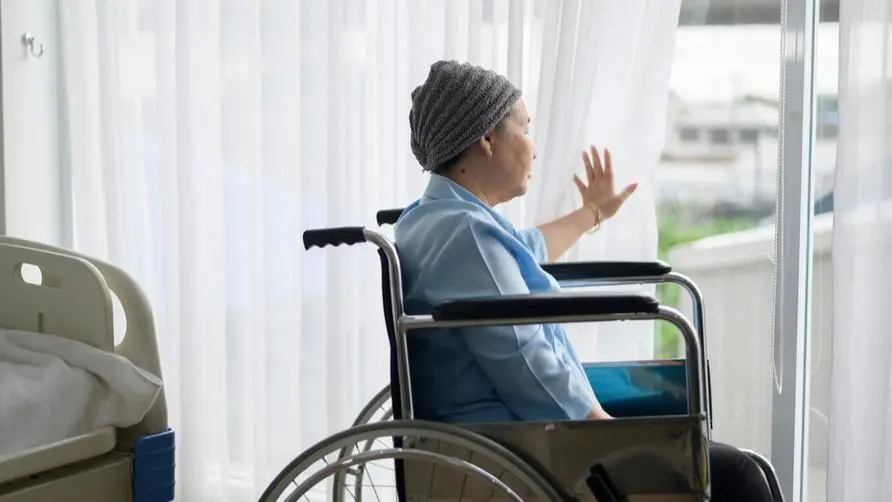Are you afraid of infection and don't go for a checkup? Beware of the risk of colorectal cancer! Can "painless testing" be done at home?

As the epidemic cools down, hospital capacity can be restored. Taiwan Health Promotion Administration urges people to actively accept screening
This year, due to the impact of the COVID-19 epidemic in Taiwan and the reduction of medical capacity in hospitals, people’s willingness to go to medical institutions for treatment has decreased, resulting in a decrease in the number of cancer screenings. Data analysis shows that as of the end of July 2020, the number of “four cancer screenings” (breast cancer, cervical cancer, colorectal cancer and oral cancer) has exceeded 2.4 million, a decrease of approximately 10% compared to the same period in 2020.
Director of the National Health Service Wu Zhaojun appealed to the public that the epidemic has gradually slowed down recently and medical institutions have gradually resumed service capacity. In addition to cooperating with the relevant epidemic prevention measures of the Central Epidemic Command Center, the public is also encouraged to actively accept cancer screening to protect their health; such as screening If the test result is abnormal, please be sure to follow the doctor’s instructions for further examination to confirm the diagnosis, and early diagnosis and early treatment can be achieved to achieve therapeutic effects.
One in 20 people has colorectal cancer. Early detection of abnormalities reduces the risk of cancer.
Regular cancer screening can detect abnormalities early, and early treatment can prevent the occurrence or progression of cancer. Take colorectal cancer as an example. Colorectal cancer has ranked first in incidence for 13 consecutive years and is the most common cancer among Taiwanese. There are more than 15,000 new cases of colorectal cancer diagnosed every year. The median age at which colorectal cancer occurs is 66 years old, and the incidence rate in men is approximately 1.5 times higher than in women.
Colorectal cancer is the No. 1 cancer in men and the No. 3 cancer in women, so men are encouraged to pay special attention. According to an analysis of the screening database of the National Health Service, the number of men screened in 2020 was about 525,000, which was lower than the 718,000 women. Because fewer men were screened, the number of polyps detected early was also less, which increases the risk of colorectal cancer. will increase relatively.
According to screening data from the National Health Service, 1 in 2 people with a positive fecal occult blood test result will have colorectal polyps, and 1 in 20 people will have colorectal cancer. Due to the impact of the COVID-19 epidemic this year, as of the end of July, there were still approximately 20,000 positive screening cases who had not yet undergone colonoscopy, which means that there may be 10,000 colorectal polyps and 1,000 colorectal cancer cases yet to be discovered.
The National Health Department calls on people who have tested positive for colorectal cancer to be at high risk for colorectal polyps and colorectal cancer. These people should go to medical institutions to arrange colonoscopy as soon as possible. If polyps are found, they can be removed at the same time to block the disease. Prevent the development of precancerous lesions and prevent their progression to colorectal cancer.
Taiwan Health Promotion Administration subsidizes regular stool examination “Painless Stool Picking” can be completed in 8 steps
If the fecal occult blood test is positive, can I do another fecal occult blood test without colonoscopy to confirm the diagnosis? According to analysis of Taiwanese research data, if a colonoscopy is performed more than 6 months ago, the risk of progressive colorectal cancer increases by 2 times, and if a colonoscopy is performed more than 1 year ago, the risk reaches 2.8 times. Dr. Qiu Hanmo, secretary-general of the Taiwan Gastroenterological Society and director of the Health Management Center of National Taiwan University Hospital, said that now that the epidemic is slowing down, hospitals also have good infection prevention measures. He calls on those who test positive for occult blood in stool tests to undergo colonoscopy as soon as possible to avoid colorectal cancer. The lower the risk, the only way to reduce the risk of colorectal cancer.
The National Health Service subsidizes the quantitative immunoassay fecal occult blood test every two years for people aged over 50 to under 75. The fecal occult blood test is not invasive and does not cause pain, and there is no need to restrict diet before the test. It is a safe and simple 8-step method of fecal collection. People who are eligible for subsidies can bring their health insurance card to a medical institution to receive a fecal collection tube and then use the feces Use the collection wand to scrape the specimen and send it back to the medical institution, and then you can wait for the screening results; or you can bring your health insurance card to the nearest health insurance authorized medical center to pick up a stool collection tube, and you can easily collect the specimen at home and send it back to the medical center for treatment. test.
According to screening data from the National Health Service, fecal occult blood testing once every two years can reduce colorectal cancer mortality by 35% and reduce the incidence of stage II or above colorectal cancer by 29%. The 5-year survival rate of early-stage colorectal cancer is over 90%, while the 5-year survival rate of stage 4 colorectal cancer is only 10.4%. The National Health Department reminds eligible people to take advantage of the epidemic to slow down and go to designated medical institutions to receive colorectal cancer screening, hoping for early detection and early treatment.
source:
Health IN Cancer OUT Regular cancer screening and fast tracking





